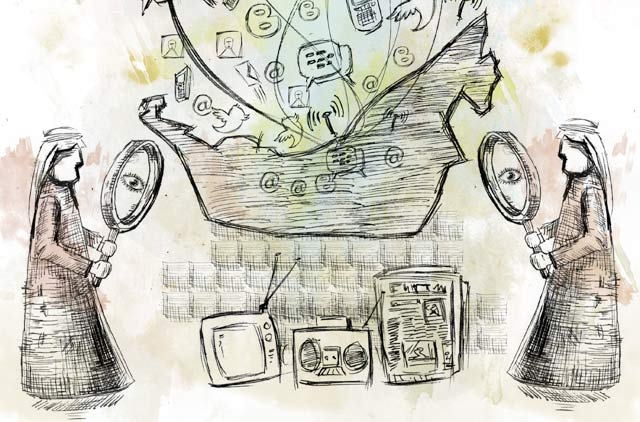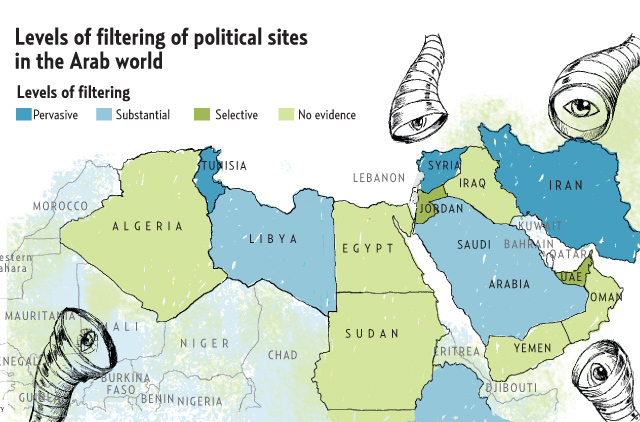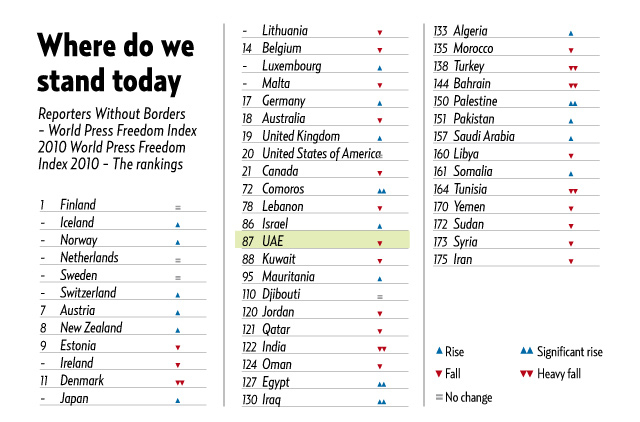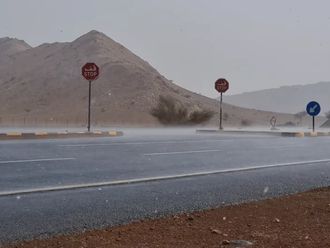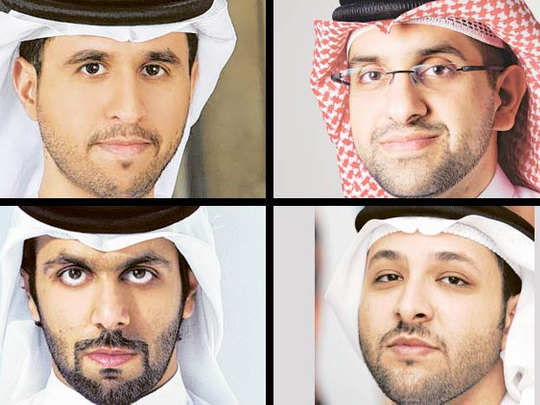
When the Dubai government releases news, it is more likely to appear on its Twitter profile before it goes to the UAE's official news agency. When news breaks, youths are often more likely to get it from a BlackBerry group or a news forum than by turning to a newspaper.
The use of social networks and internet groups has become so important in news dissemination that even mainstream news outlets are adopting the technology and keeping a close eye on citizen journalists keen to be the first to deliver news.
Who reads newspapers, then?
Statistics show that the use of social networks and alternative media in the UAE is growing at an alarming rate.
Unwilling to wait for today's news in tomorrow's newspapers, and frustrated with self-censoring mainstream news outlets, many youths are turning to unconventional sources of information dissemination.
Al Rams is a news forum run by an Emirati journalist that attracts 600,000 unique visitors a month. It also runs a BlackBerry group that delivers news to 9,000 members at the click of a button.
Not overly concerned
The 2009-2013 version of the Dubai Press Club's Arab Media Outlook reported that the number of those in the region relying on the internet as a source for news is almost as many as those relying on newspapers. Forty-one per cent of those surveyed rely on newspapers for news, whereas 40 per cent rely on the internet.
Twenty-six per cent rely on non-traditional sources for news, such as blogs and forums. Print industry experts, however, do not feel threatened by the phenomenon, the report said. Ahmad Al Tunaiji, administrator of Al Rams, said that his site complements traditional media and does not threaten it.
"Major newspapers follow us and take news items [from] us as well as pictures and give us credit," he said.
Sultan Al Qasimi, a UAE journalist and social media enthusiast with a twitter following of over 34,000 people, argued that non-traditional tools of news dissemination have emerged due to the mainstream media's failings.
"Emiratis and Gulf citizens use BlackBerry as a means to learn about news that has either yet to appear in the local news or is not fully covered. The fact that many Emiratis depend on BlackBerry for news is a reflection of what is perceived to be a lack of full freedom in the local press," he said, warning however that such tools could also be used to spread rumours.
Internet penetration
The Arab Social Media Report report by Dubai School of Government [DSG] found the UAE to have the highest Facebook penetration rate in the Arab world, which co-author Fadi Salem said was due to the country's high internet penetration rate, the economic situation of the country and the fact that the vast majority of the country's residents are expatriates who look to maintain contacts with friends and family at home through social networks.
According to Salem, social media tools are continually becoming the primary source of information in the UAE, a trend he attributes to the speed at which information can be disseminated through them and because of the low credibility of self-censoring mainstream media.
Pro-active press
Al Qasimi agrees: "A pro-active press can within a short period supplement the dependence of Emiratis on BlackBerry, social and foreign media. It is high time for the UAE media to take back the initiative and in this case social media can play a strong role."
The UAE has the second highest broadband penetration in the Arab world, after Qatar. One of the noteworthy findings of the DSG's study, said Salem, was that the use of Facebook in the Arab world rose by about ten million in 2010, from almost 12 million in January 2010 to approximately 22 million by December 2010. The use of Facebook in the region, he said, has also shifted from a predominantly social-based tool to a more political one.
Are governments' efforts to control media completely over? Which platform do you think is the future of journalism?


